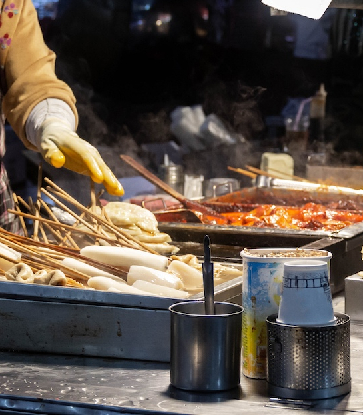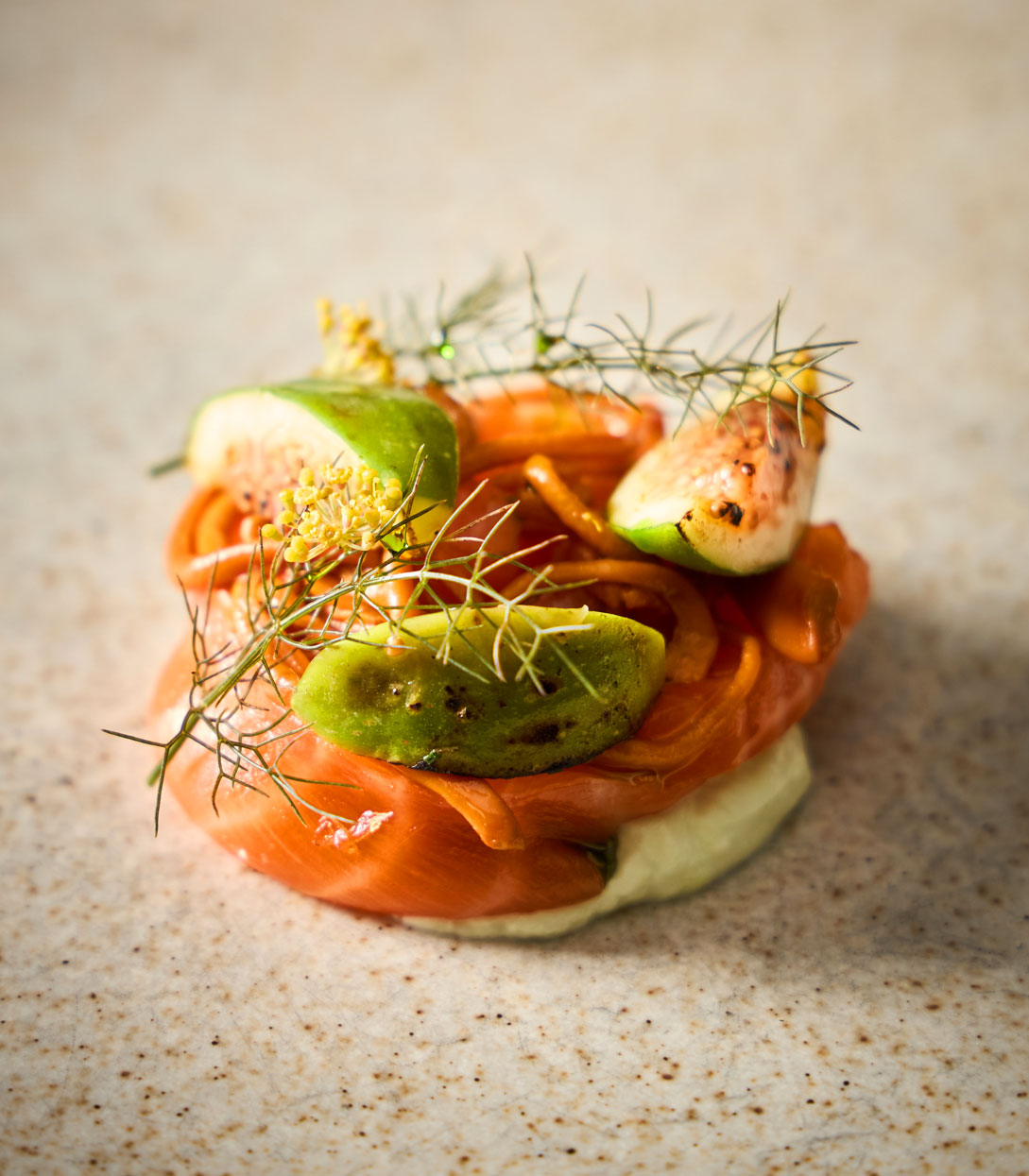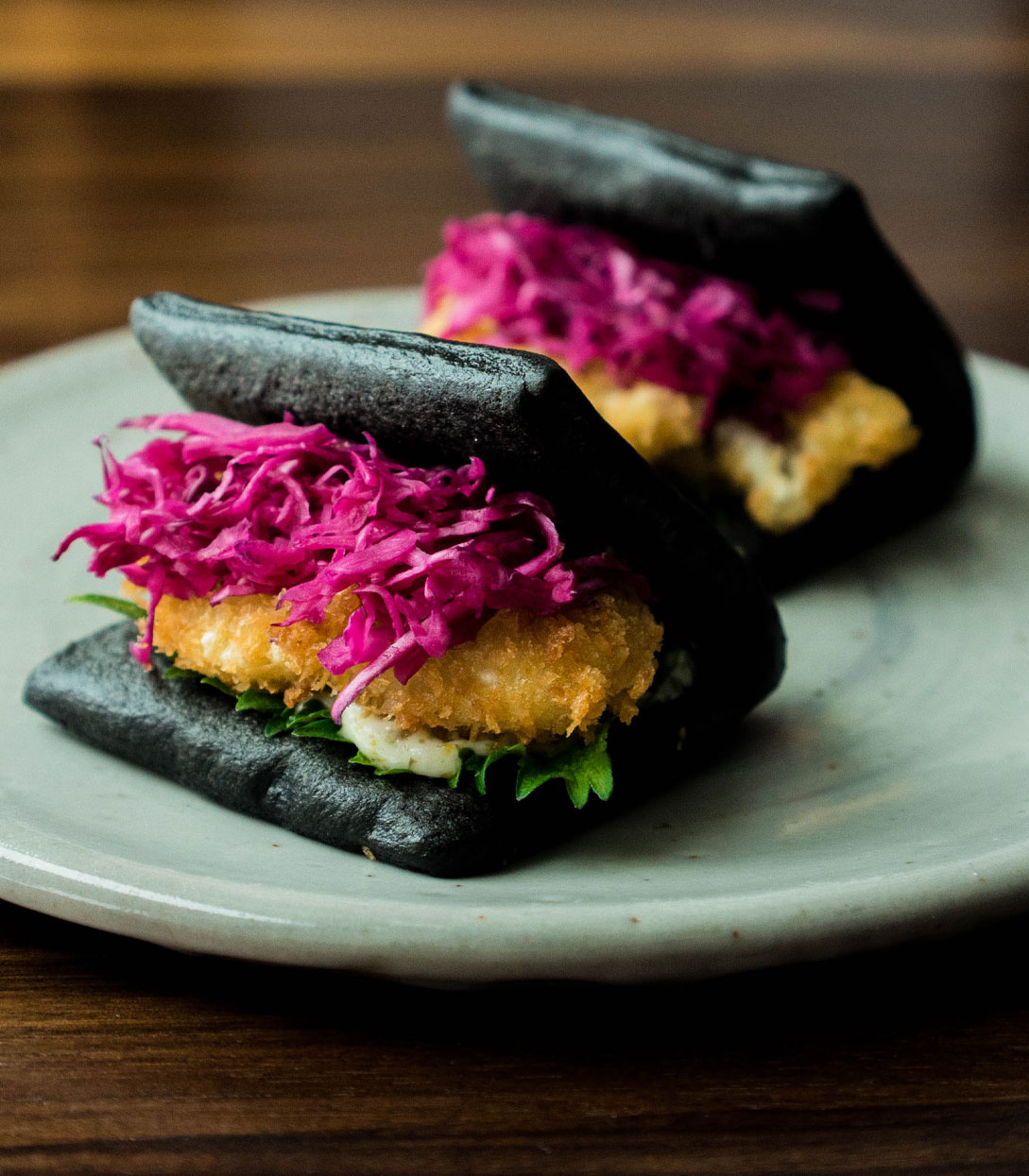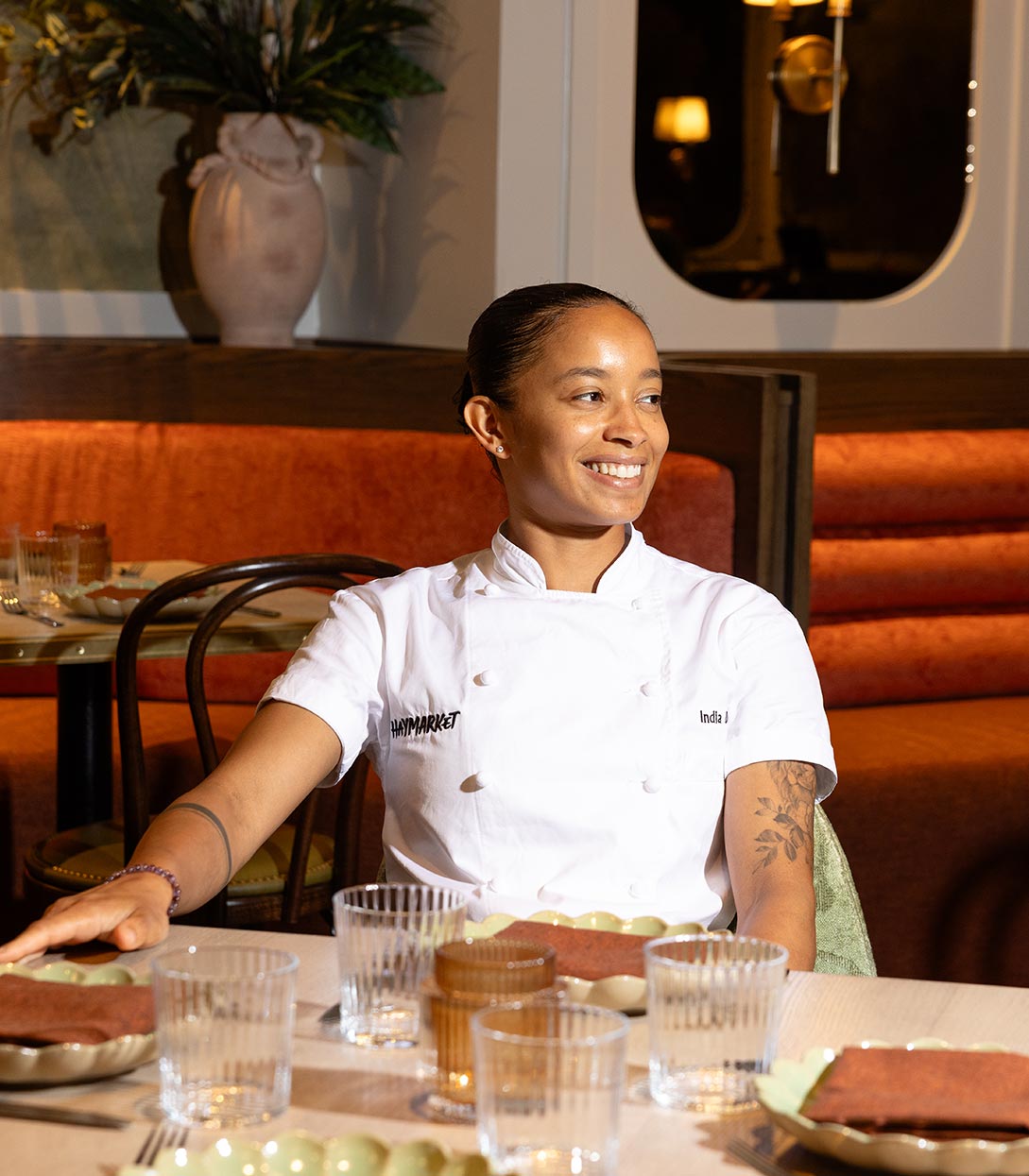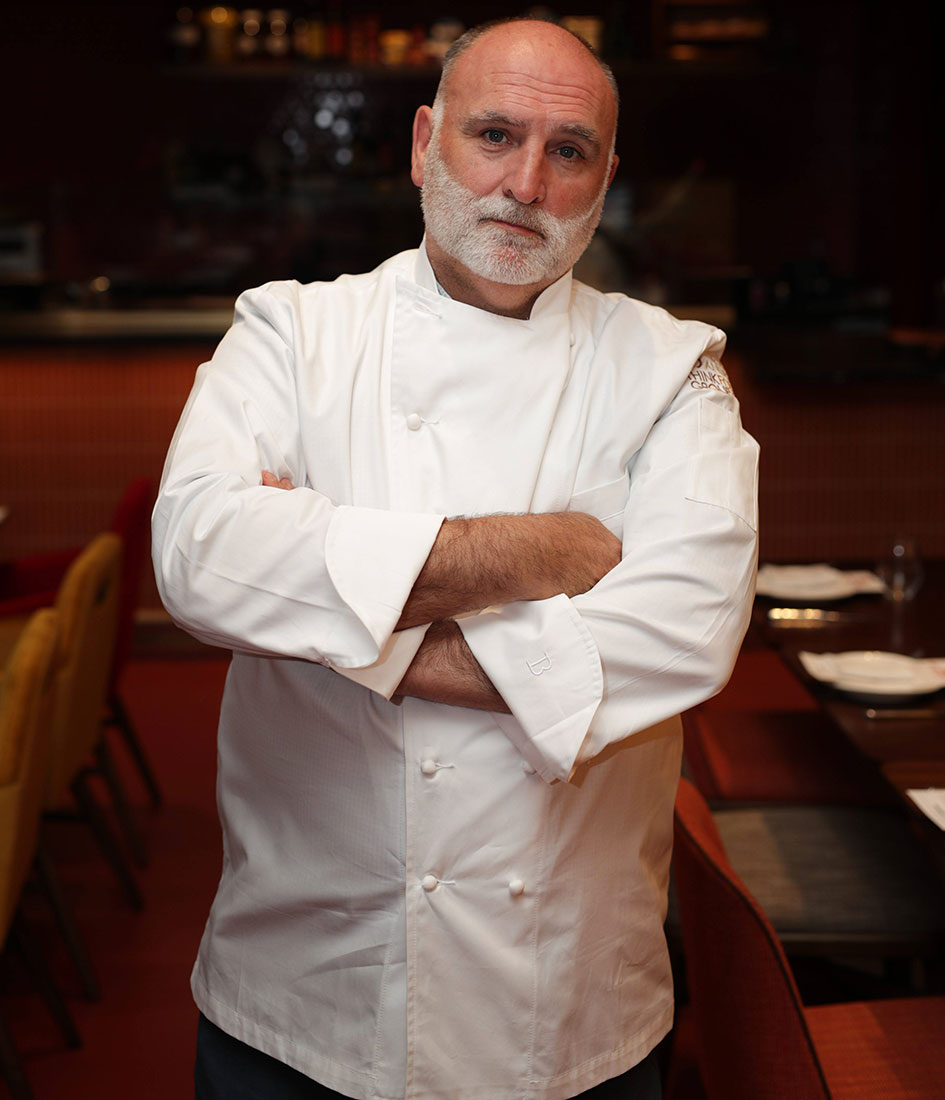As co-captain of the City Harvest team in the upcoming New York City Marathon, chef David Shim's philosophy mirrors his approach in the kitchen—meticulous preparation and measured pacing. The executive chef of COTE Korean Steakhouse bridges the restaurant's vibrant atmosphere with City Harvest's food rescue movement, proving you can make an impact while having fun.
Below, the One MICHELIN Star restaurant chef breaks down his transition from soccer to gastronomy, ways to destress, and why giving back is so important.

What was the idea behind COTE?
The idea came from our fearless King Dragon Slayer, Simon Kim. He always dreamed of opening his own restaurant that was a representation of himself, his culture, and experiences. COTE is a reflection of Simon being a Korean American, weaving in aspects of both cultures and cuisines while elevating the entire dining experience with a robust wine list, caviar service, and more.
What is the goal with COTE?
The goal is to offer people a place to have a fine dining, MICHELIN-star level experience within a fun and convivial environment. We want people to have fun and enjoy each other’s company, while eating the highest-quality food and the best wine and/or cocktails, all in one place.
Talk about transitioning from soccer to gastronomy, what spurred that change? Does your soccer background play a role into who you are today/what COTE is? If so, how?
My initial life goal was to become a professional soccer player, which didn’t work out as planned. After deciding to move on from soccer, I came across the culinary industry—it had such a strong energy, drive, competitiveness, discipline, and dedication—that it reminded me of sports. It had the grind that I was used to., and I found myself putting in hours to practice and learning all the fundamentals. By the time I realized how deep I was in it, I was living it and couldn't step away. Now, at COTE, I work at a restaurant that is a true reflection of me as a Korean American, and cook food that I love and reminds me of my upbringing.
What challenges did it bring?
When I broke into the restaurant industry, the most significant challenge I faced was my constant desire to outperform my peers. It was a double-edged sword, especially as this was my second career and I embarked on it at a later stage in life. At times, I found myself isolated, working as a lone soldier. But this isolation allowed me to reflect on my approach, which ultimately showed me the importance of teamwork in the kitchen, and how it cannot operate with just one person.
How hard is it to balance your culture while living in another country?
Initially, the most challenging transition in the restaurant industry was authentically representing my Korean culture. Cooking wasn't always perceived as a cool career, and the industry had its own set of standards. It took me some time to find comfort in my Korean heritage and to comprehend how to illustrate, through my work, what it means to be a Korean American today. Now, I don't have any reservations about embracing who I am in my work. I draw inspiration from my upbringing, home, and culinary journey; and I reflect this in our constantly evolving menus.

What is the best way for you to destress from work?
I am an adrenaline junkie, so I love being active as a way to destress. I really enjoy running, swimming, playing tennis or soccer—I train every day to wake up with positive energy to do great work.
What does your training plan look like?
I've consistently been pushing my physical limits, especially with marathon training. On weekends, I take long runs. On hectic weekdays, I try to carve out a dedicated hour, let's call it a "lunch break," for intense workouts. Additionally, I've been fortunate enough to incorporate a weekly game of tennis into my routine, which has significantly helped build stamina in a fun way.
Are there any similarities between training for a marathon and preparing for dinner service?
The key is preparation. I can have the best staff for service, but if I don't have any prep done, there's a good chance it won't go well. Same with the marathon. If you don't prepare yourself properly and try to cram in training at the last minute, you might not be able to finish through, or even worse, you might get injured.
What are some takeaways from cooking that you could apply to running?
When cooking and preparing a meal, it’s extremely important to pace yourself. The same goes for running, especially when it comes to a marathon. It is extremely important to pace yourself, so you don’t get exhausted too early on.
What are the best foods to eat when training for a marathon?
Healthy carbs and lots of protein—this is the perfect time to enjoy steak!
You’re the co-captain for the City Harvest team in the NYC Marathon, how did your relationship with City Harvest start?
The COTE leadership team connected with the team at City Harvest over six years ago, and instantly fell in love with the mission and work they do. Since day one, it has been important for our team to show love back to our community. Feeding people is a basic human right, and it has become a pillar of our culture at the restaurant to support organizations like City Harvest year-round. Whether it’s participating in a live auction, hosting dinners at the restaurant, volunteering at the mobile market, giving back is embedded in our DNA. Now, we get to work with the team in a fun way that combines my love for giving back to the community and being active.
Why is the food rescue movement so important to you?
Currently, over 3 million New Yorkers are facing the daily challenge of making ends meet as they grapple with high costs for rent, food, and other necessities. This year, City Harvest is on track to rescue 77 million pounds of perfectly good and nutritious food that would otherwise go to waste and deliver it—free of charge—to hundreds of soup kitchens and food pantries across the five boroughs.
At COTE, our core mission revolves around creating happiness through delicious food, which is why partnering with an organization like City Harvest is extremely important for me. We prioritize giving back to our community, and our vision at COTE underscores that our success is tied to the well-being of our community. Therefore, every effort we make to support and uplift our community is a victory in my book. I've been committed to this mission for the past six years, and it's embedded into my identity. I couldn't be more thrilled to support an exceptional organization like City Harvest.
What is one thing people should know about food waste? What’s one tip for people to decrease their food waste?
An important note about food waste is that it's the single biggest material placed in municipal landfills. My one tip for people is to be strategic about what food you buy at the store. Make a meal plan beforehand so you only get what you need.

What was the initial feedback to the menu/concept?
When we first introduced the menu with our Butcher’s Feast, we had an overwhelmingly positive response. A Korean steakhouse was a new concept for New York diners, and COTE provided them with an experience unlike anything they’d seen before. In theory, we took what you would traditionally get at Korean BBQ, and we elevated the entire experience: giving diners four cuts of the highest quality beef, along with a variety of side dishes and accompaniments, and ending with a desert. All of this was offered at an approachable price point in a fine dining setting. To this day, the Butcher’s Feast is our hero offering.
If you were dishes on the menu, which ones would you be?
I'd choose the marinated short rib, primarily because it brings back childhood memories. What's interesting is that, just like the restaurant industry and kitchen staff specifically, the hard work behind it often goes unnoticed. People might not know that the marinated short ribs requires a full 24 hours to prepare. So even though it may not steal the spotlight, it consistently delivers a fantastic taste that never lets you down.
What advice would you give to immigrants/people of color trying to make their mark in the culinary world?
Authenticity is key. It can be difficult at first, but it's so important to remain genuine and authentic—to stay true to your roots, your individuality, and your professional evolution. Explore various paths and embark on a journey of self-discovery, but never hesitate to embrace your cultural heritage and incorporate it into your work. With passion, dedication, and hard work, your true skills will shine through, making the long grind worthwhile.
What about the restaurant are you most proud of?
I am very proud of the fact that we introduced a brand new concept—a Korean steakhouse—to the American culinary scene. Being recognized as the first Korean steakhouse to earn a MICHELIN Star is a testament to the outstanding team we've assembled, many of whom have been with us since the beginning.
Last meal on earth, what are you eating?
A good meal is who you eat with and what you’re eating. I want to be surrounded by all the people I love and enjoy the fanciest buffet in Asia, where I can eat whatever I want, whether it's steak and sushi, to everything in between.
Hero image: Courtesy of COTE
All photos courtesy of COTE





